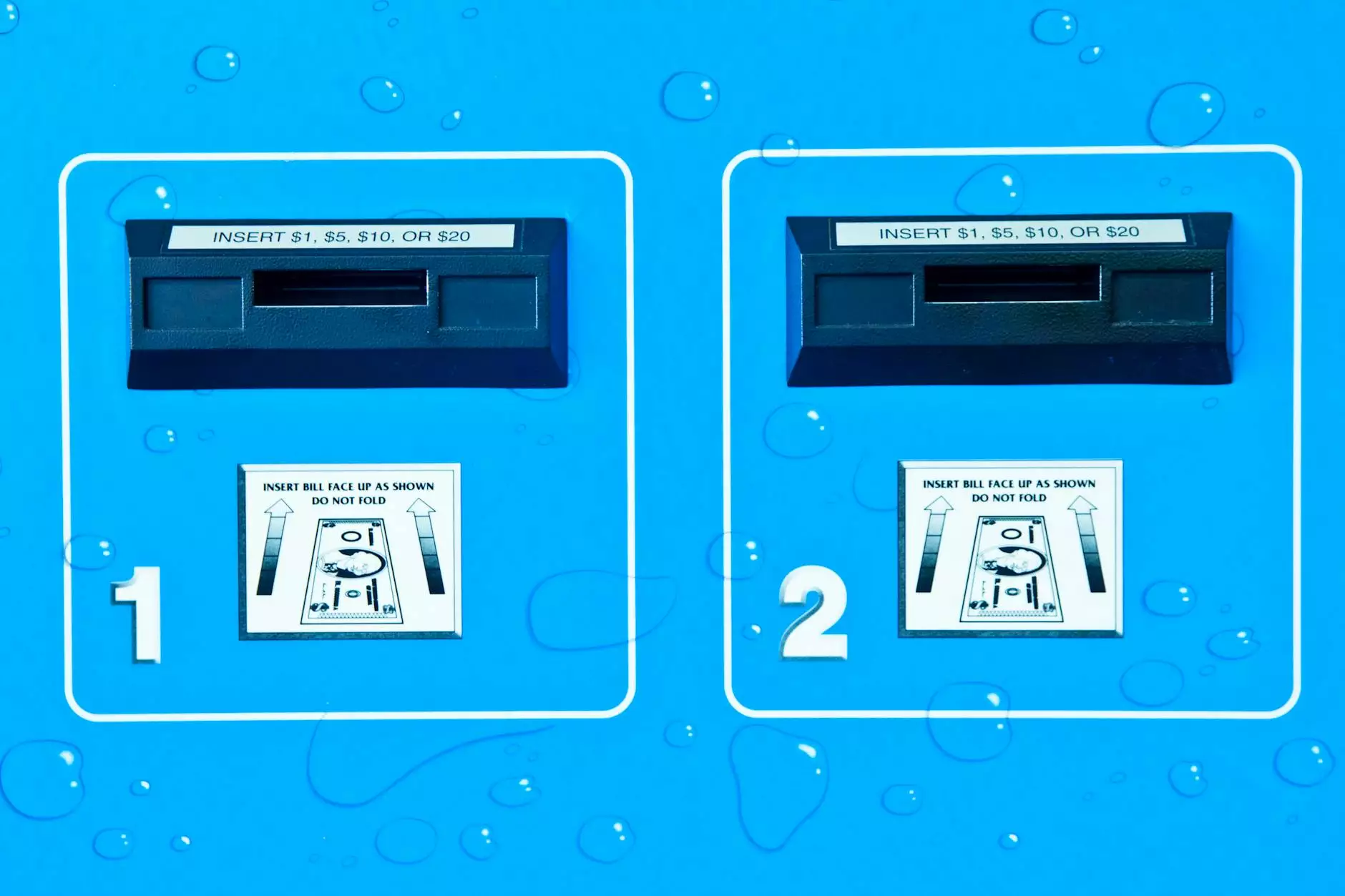Unlocking the Power of Fabric Label Makers for Your Business

The world of business is constantly evolving, and in the digital age, staying competitive is paramount. One of the most innovative tools that businesses can utilize for efficiency and branding is the fabric label maker. This article will explore how these devices can transform business operations, enhance product presentation, and improve customer satisfaction.
Understanding Fabric Label Makers
A fabric label maker is a specialized device designed to create labels made from various types of fabric. These machines are versatile, allowing businesses in industries such as retail, manufacturing, and food services to create custom labels that are both durable and visually appealing.
The Mechanics Behind Fabric Label Makers
Fabric label makers use advanced printing technology, including:
- Thermal Transfer Printing: This method transfers ink from a ribbon onto the fabric, resulting in high-quality, durable labels.
- Direct Thermal Printing: Instead of using a ribbon, this method prints directly onto heat-sensitive materials, ideal for short-term labeling.
- Inkjet Printing: This technology allows for vibrant color prints and intricate designs on fabric labels.
Benefits of Using Fabric Label Makers
Integrating a fabric label maker into your business strategy offers numerous benefits:
1. Enhanced Branding Opportunities
Labels are an essential aspect of branding. They provide a canvas for your logo, brand colors, and any other information you wish to communicate. Custom fabric labels can:
- Differentiate your products from competitors.
- Enhance the perceived value of your items.
- Create a recognizable brand identity.
2. Increased Product Information
Fabric labels allow businesses to convey critical information, such as:
- Care Instructions: Educating customers on how to maintain the product enhances customer satisfaction.
- Ingredient Lists: Particularly in the food industry, these labels provide transparency and build trust.
- Size and Color Options: Ensuring customers have all necessary information before purchasing.
3. Versatility Across Industries
The applications of fabric label makers are vast and can cater to various sectors, including:
- Fashion and Apparel: Brand tags, care labels, and size markers.
- Food Industry: Labels for ingredient transparency and product identification.
- Home Goods: Labels for textiles, upholstery, and packaging.
4. Cost-Effective Solutions
Investing in a fabric label maker can drastically reduce costs associated with outsourcing label production. By bringing this capability in-house, businesses can:
- Save on printing costs.
- Reduce lead times for label production.
- Maximize flexibility for small-batch projects.
Key Features to Look For in a Fabric Label Maker
When considering the purchase of a fabric label maker, several key features should be evaluated:
1. Printing Quality
Look for printers that offer high-resolution prints for vibrant and clear labels. The quality of your labels can significantly impact customer perception.
2. Speed and Efficiency
Choose a model that can print quickly without sacrificing quality. This is particularly important for businesses that require a high volume of labels.
3. Usability
A user-friendly interface can greatly enhance productivity. Look for machines with intuitive controls and easy software integration.
4. Durability of Labels
Labels should withstand various conditions, especially if used in challenging environments. Ensure that the labels produced are water-resistant, tear-resistant, and fade-resistant.
5. Versatile Media Handling
Your device should be capable of handling different types of fabrics and sizes of labels. This adds flexibility to your labeling projects.
Applications of Fabric Label Makers in Various Industries
The versatility of fabric label makers means they find applications across a myriad of industries. Here are a few notable applications:
Fashion and Textile Industry
In fashion, fabric labels are vital for branding and providing care instructions. Designers utilize custom labels to:
- Add a professional touch to clothing lines.
- Provide essential care and sizing information.
- Create a visual identity that resonates with consumers.
Food & Beverage Sector
In the food industry, fabric labeling can play a crucial role in maintaining compliance and enhancing branding. Uses include:
- Labeling organic products for transparency.
- Indicating allergen information.
- Branding unique culinary creations.
Home Goods and Textiles
Businesses that specialize in home goods can utilize fabric label makers for:
- Creating custom labels for bedding and curtains.
- Marking materials to ensure the correct product reaches the consumer.
- Providing brand recognition on various household items.
Top Fabric Label Makers Available on the Market
When selecting the best fabric label maker for your business, consider the following top-rated machines:
1. Brother P-touch PTD600
This label maker is known for its excellent functionality and ease-of-use. It offers:
- High-resolution printing.
- A wide range of label sizes.
- Durable prints that can withstand wear and tear.
2. DYMO LabelWriter 450
The DYMO LabelWriter 450 is particularly suitable for small to medium businesses, providing:
- Fast print speeds.
- A user-friendly design.
- Integration with various software applications for efficiency.
3. SATO CL6NX
This industrial-level fabric label maker is ideal for larger operations requiring:
- High-volume printing.
- Exceptional durability and print quality.
- Versatile media handling for various label types.
How to Implement a Fabric Label Maker in Your Workflow
Implementing a fabric label maker into your business workflow can be seamless if approached correctly:
1. Assess Needs and Requirements
Evaluate what you need from a label maker. Consider the types of labels you will produce, the volume, and the required quality.
2. Train Staff
Provide adequate training for your team to ensure they can operate the equipment efficiently and creatively.
3. Develop Standard Operating Procedures
Create SOPs for label production to maintain quality and consistency across all labeling projects.
4. Monitor and Adjust
Continuously monitor the label production process and be open to adjustments based on feedback and efficiency metrics.
Conclusion
The introduction of fabric label makers into your business strategy represents a significant opportunity for growth, branding, and efficiency. By understanding their benefits and applications, choosing the right machine, and implementing it thoughtfully in your operations, you can enhance your brand's image and customer satisfaction.
As businesses strive to create unique and compelling identities, leveraging the power of fabric label makers can set you apart in a competitive marketplace. Invest in a fabric label maker today and watch your business thrive!









